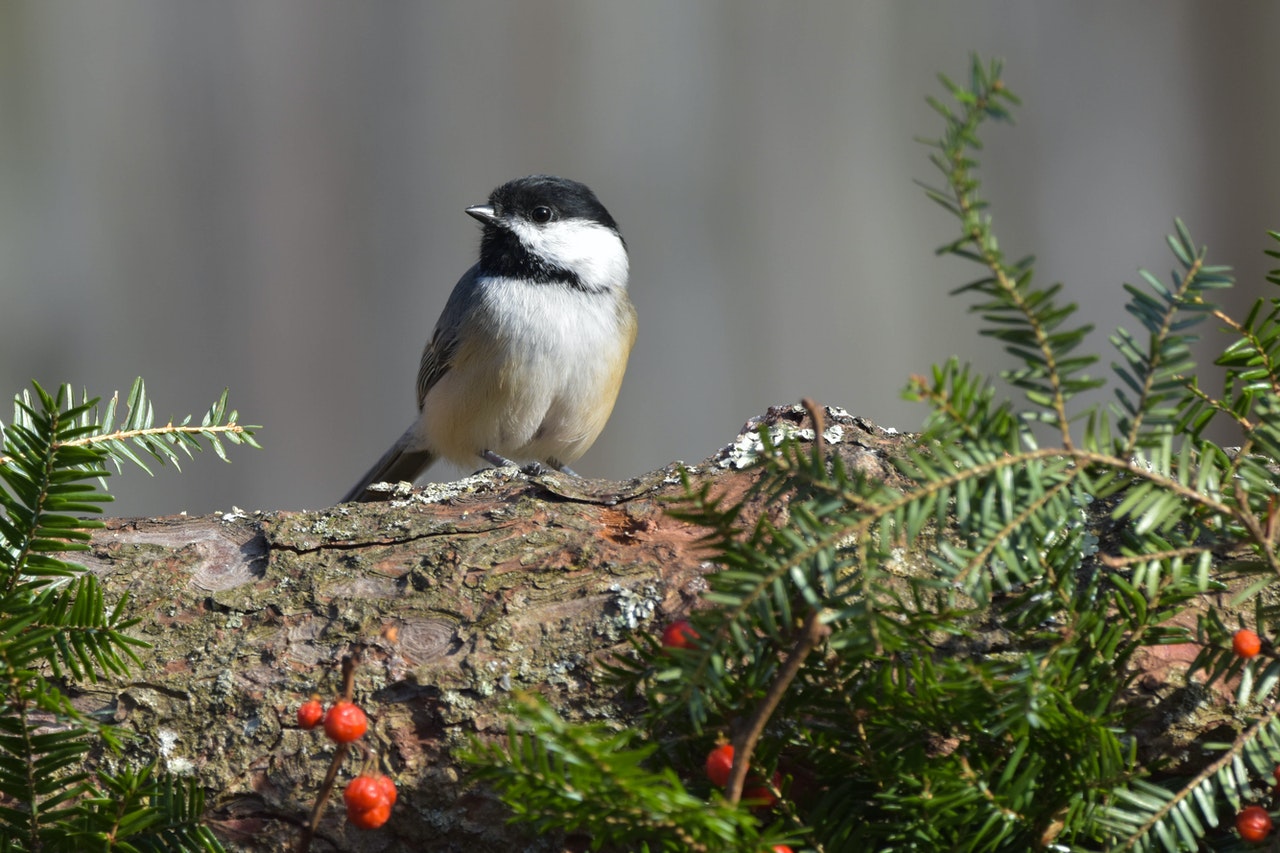A sermon preached at Restoration Anglican during Lent, on April 3, 2022.
A reading from the prophet, Isaiah.
I’d like to begin with prayer.
Heavenly Father, we bow in your presence. May your Word be our delight, your Spirit our teacher, and your greater glory our supreme concern, through Jesus Christ our Lord. Amen.
As followers of Jesus, we are in the season of Lent, when the church calls us to fasting and penitence, to be aware of our personal fallenness and the brokenness of the world. Today is the final Sunday in Lent—and I have to say it’s about time. I don’t know about you, but it’s felt like Lent has been dragging on for two long years now, and quite frankly, I could use some good news for a change.
The pandemic has had a real, tangible effect on us. It’s taken a toll in our lives, our spirituality, our vocations, our families, our vacations, our finances, and our relationships even if we haven’t caught the virus. As of last week, over 970,000 people have died from COVID in the US, and apparently, epidemiologists tell us, the virus may not be finished with us yet.
And that isn’t all that has taken a toll on us. America is deeply divided. Disagreement too often slides into outrage and a lack of civility. Social media distracts us with an array of trivia, misinformation, and lies. A growing mistrust of the institutions and leaders of society threatens the fabric of our democratic freedoms. The news is so bad the act of reviewing it online is now called doom-scrolling. I don’t like what all this has revealed about my character, and lack of virtue, and slovenly spiritual disciplines, or the realization that weekly confession of sin is, for me at least, grossly insufficient.
And then there is Ukraine. The people of Ukraine, a nation about the size of Texas, are demonstrating resilience and courage against all odds, suffering a daily barrage of bombs and missiles that not only bring death and destruction but a mass migration of vulnerable women and children that come under attack even as they try to flee. How do we even process this tragedy?
And there is more, but I suspect none of us need a review of the bad news. What we need is good news, the birth of renewed hope.
I think it feels rather like we’ve set out on a journey and have never been this way before. That’s doable, in itself, except that we sense the uncertainty may not relent as quickly as we’d like. It’s the uncertainty that’s so unsettling, isn’t it?
It’s like we’ve joined up with Frodo the hobbit in J. R. R. Tolkien’s The Fellowship of the Ring. We’re on the road away from the certainty of home, sensing there is danger in the woods on either side. And so we arrive at The Prancing Pony, where a letter from the wizard Gandalf is waiting for Frodo, introducing him to Strider, whose name is Aragon. In the note is a brief poem, a poem that captures my heart’s yearning.
All that is gold does not glitter,
Not all those who wander are lost;
The old that is strong does not wither,
Deep roots are not reached by the frost.
From the ashes a fire shall be woken,
A light from the shadows shall spring;
Renewed shall be blade that was broken,
The crownless again shall be king.
The beauty of that vision is what I hope and wait for this morning in our uncertain and troubling world on this last Sunday in Lent.
Is such a hope possible? I believe it is. To show you what I mean, let’s turn to our Scripture readings, all of which bring good news, heralding the possibility of real, substantial change, the arrival of something new that will right what’s wrong and bring true renewal.
In our Philippians reading, St. Paul celebrates what it means to know Jesus as Lord of all. Everything in life, culture, and reality is now defined by Paul’s primary allegiance to Christ. Even hard times are transformed, Paul says, not by becoming less hard but because they allow him to share in the sufferings of Jesus. “Indeed,” he says in verse 8, “I count everything as loss because of the surpassing worth of knowing Christ Jesus my Lord.” That’s a very radical claim. It’s also a hopeful one because this is not a spiritual self-help project, but, he says, the experience of the power of resurrection, in this life and the next, world without end. Paul’s audacious claim is that God’s kingdom is among us, and we too can share in this life-generating power under Christ’s Lordship in the ordinary and routine of our lives, even in a broken and uncertain world.
In our Gospel reading, Jesus tells a deliciously subversive story about a vineyard and its displeased owner. But Jesus’ audience wasn’t distracted by that—the vineyard was a well-known metaphor used by the prophets to refer to Israel. Jesus’ story describes the vineyard workers, in other words, Israel’s religious leaders, as unfaithful stewards who were so out of touch with God, they were willing to kill the vineyard owner’s son. Turns out some religious leaders were there listening to Jesus and became so enraged they wanted to do Jesus in, demonstrating the point of his parable. Still, Jesus’ primary point is not the religious leader’s failure but the fact that the vineyard owner is on the move, has sent his son, and the one that has been rejected will be revealed to be the promised and long-awaited king who will right all wrong and restore the vineyard to its proper fruitfulness.
And that brings us to our Old Testament reading, which I’d like to look at more closely with you. It is poetry composed in the 8th century BC by the Hebrew prophet Isaiah, who spoke God’s word to God’s people during a time of political uncertainty, discord, mass migrations, and invading armies.
The Isaiah reading includes six verses that divide into three parts. The first two verses (16-17) introduce the speaker, who is the God who rescues with justice, ending oppression and bringing renewal. In the next two verses (18-19a) God speaks, telling us to forget the past and look forward to something new. And the last two verses (19b-21) claim that God’s renewal will extend to everything under the sun. There is reason to hope, in other words, because God is on the move, righting what’s wrong in a broken world and bringing restoration.
Look at the middle section, verses 18-19b. “Remember not the former things,” God says, “nor consider the things of old. Behold, I am doing a new thing; now it springs forth, do you not perceive it? “Be alert, be present,” Eugene Peterson translates it in The Message, “I’m about to do something brand-new. It’s bursting out! Don’t you see it?”
In other words, we shouldn’t imagine that the brokenness is the final word in the story. God is personally bringing something new that will right what’s wrong and bring restoration beyond all imagining.
That’s good news.
But there’s also a problem here. The problem is that in announcing his new thing, God asks us a question we’re pretty sure should have a positive response: “Don’t you notice the new thing that’s coming?” God asks. “Don’t you see it?” The problem is, what if we don’t? Don’t see it, don’t perceive it, I mean? What then?
That’s a very good question, and here is the answer I’d give.
First, it’s worth reminding ourselves that it’s hard to spot signs of hope in stressful times full of uncertainty. So, don’t be hard on yourself. We maintain hope not by being perfect but by reviewing the reasons for hope. Which we are doing together this morning, so hang on a few minutes. We’ll get there. But don’t be too hard on yourself.
And second, God isn’t posing a test here. He isn’t implying that if you don’t notice the new thing, you’ve somehow lost and fallen out of favor. That’s the sort of thing that pagan gods do, and why they always have to be appeased, but the God of Scripture is not a pagan god. Instead, he is asking the question to awaken us, to remind us that signs of the new thing can be perceived if we have eyes willing to see.
And what are those signs? Isaiah alludes to two of them in the other two parts of this text.
Look at the first section, verses 16-17. This is where he introduces the God who speaks to us, who promises a new thing that will bring renewal. “Thus says the Lord,” Isaiah writes, “who makes a way in the sea, a path in the mighty waters, who brings forth chariot and horse, army and warrior; they lie down, they cannot rise, they are extinguished, quenched like a wick.”
Isaiah is creatively and imaginatively doing two things here. He invokes an event that his audience will immediately understand and reminds them that the God that restores is a God of justice.
The event is pivotal in Israel’s national story, the story that identifies them and sets them apart from all other nations. Centuries earlier the Israelites were an oppressed and despised people, enslaved in Egypt. God heard their prayers for rescue and raised up Moses to lead them out of captivity to a place they could call home, a land where God dwelled in their midst. In Egypt they celebrated the first Passover, an awful event where death came to every household in the land. Either a lamb died or a firstborn child, and as the Israelites sat down together over that first Passover meal, they were face to face with the cost of their redemption. So, they left Egypt, traveling into the wilderness towards a land none of them had seen. Over succeeding days, the grief that had flooded the hearts of Pharoah and the Egyptians soon morphed into outrage, and the Egyptian army was dispatched to bring the Israelites back, to return them to servitude. So, Israel found itself trapped, with the uncrossable Red Sea in front of them and the Egyptian army coming up behind them. Do you remember the story? You can read it in Exodus 14-15. The short version is that God opened a way across the water for his people and when the Egyptians tried to follow, their chariots got mired in the mud, the army bogged down, and scores drowned. God had rescued his people with justice.
Isaiah evokes that great historic narrative in the way he introduces God as the speaker. God “makes a path in the mighty waters,” where “chariot and horse… lie down” and “cannot rise.” His audience would know instantly what he was referring to, because that event was not a secret, accomplished in the shadows, but open and public and known in history. Word spread, in fact, so that as Israel traveled towards Canaan, they found the various tribes they encountered had heard the news of their God and what he did for them.
In other words, Israel could trust that God was doing a new thing not as a blind leap of faith but because the God who promised had worked in the past in a way that could be verified and known. Israel’s story provided reason to hope because the Red Sea actually happened.
And that suggests an obvious question for us, namely, is there an equivalent event in our Christian story? An event that defines and identifies us, and that in terms of history is verifiable and known? Indeed, there is. We will celebrate it in exactly two weeks, the resurrection of Jesus Christ from the dead. On that day, the ancient and venerable myth of the dying god who comes back to life became a fact in history, known and verified.
An aside: If you have doubts or questions about the historicity of the resurrection, please consider examining this claim. Two studies of it by better minds than mine—scholar N. T. Wright and pastor Timothy Keller might be helpful as a place to begin.
The point is this. Isaiah says God has promised a new thing, but we don’t just have to take the prophet’s word for it. There is reason to believe it because God actually began his great restoration 2000 years ago when he raised Jesus from the dead. A new thing is promised, and an empty tomb is the guarantee. And that brings us full circle back to our Philippians reading, but I don’t have time to explore that this morning.
And finally, let’s look at the third section the Isaiah reading, verses 19b-21. “I will make a way in the wilderness and rivers in the desert. The wild beasts will honor me, the jackals and the ostriches, for I give water in the wilderness, rivers in the desert, to give drink to my chosen people, the people whom I formed for myself that they might declare my praise.” In other words, God’s new thing will result in the restoration of all things in all of creation. All creation will praise the Creator. Now, if that is a credible promise, we would expect that nature reveals something of glory now. So, I ask you, have you ever caught a glimpse of transcendence, a hint of a far greater radiance in nature? I have.
Outside one of my childhood homes was a large evergreen tree. The lowest branches of my tree had not been trimmed back, and so formed a tent. I discovered I could push through the tent of branches and enter a space where I could hear and see out yet be hidden.
It was there I learned to listen to the voices of birds, their alarms and scolding, calls and songs. Even the endlessly repetitive chirping of English sparrows was not discordant to me, but singular cries to be noticed. The robins were mostly silent, running along the ground to suddenly stop, head tilted before pouncing and snatching up some insect. Chickadees were always on the move, flitting from branch to branch. Blue jays, always quick to notice danger, did not seem to notice me but would let me know when the dogs from up the block, brutish, nasty creatures, were on the prowl. Learning to hear the birds filled my imagination with the hope that something lovely was possible beyond the judgmental and abusive atmosphere that filled our house. Perhaps, just perhaps a better home was possible where beauty reigned.
It was also there that I learned to listen to silence, and in the silence, I found contentment. I do not mean that somehow, I learned to be content as if I slowly developed a skill but rather that under that tree contentment inexplicably washed over me and into me and filled my soul. I remember it as a surprise, as from beyond me, and as gracious. And in that contentment, I caught a glimmer of hope that there was something beyond the narrow disappointing confines of my daily existence that could perhaps have wider horizons. As a boy I didn’t have the words or understanding to describe what was happening. Looking back now, I know it was a divine encounter from the Holy Spirit.
All that God has made has his fingerprints all over it. If we have eyes to see, we can catch brief glimpses of transcendence, hints of glory in nature. I cannot prove these subtle signs exist, but I would argue they can be seen.
Look at history and see the empty tomb; look around at the astounding order and beauty of the universe and see hints of transcendence. The first is a historic fact; the second are subtle yet convincing signs that there is more than just the here and now of space and time. And both provide a reason to believe God’s promise. Something new is coming. In fact, it’s already begun.
Do you see it?
In the name of the Father, the Son, and the Holy Spirit. Amen.
Photo credit: Jack Bulmer on Pexels



